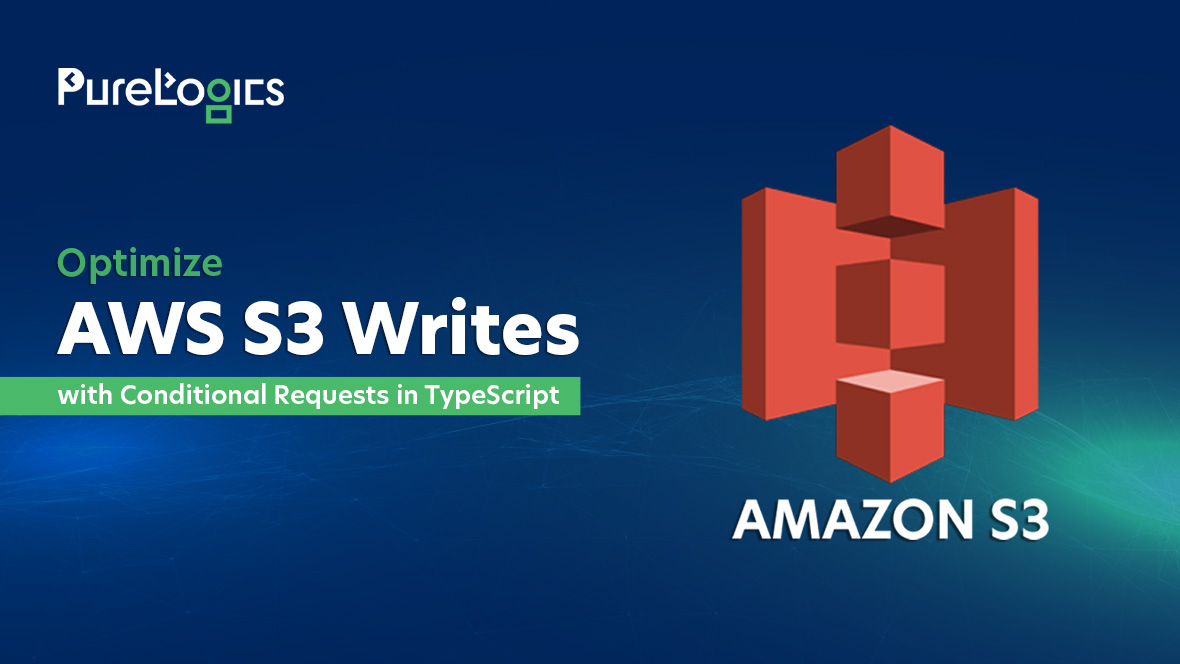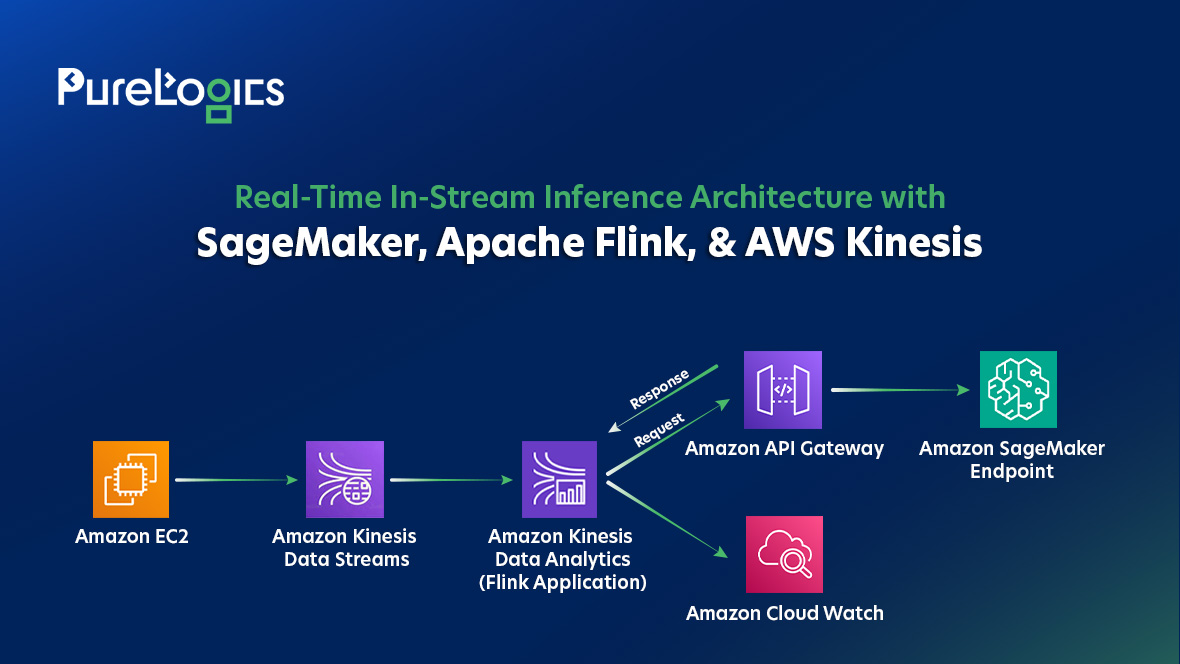When it comes to the cloud, especially when using AWS S3, efficient management of data is extremely important. Many developers are acquainted with data management in S3, but there are only a few who are benefitting from conditional write requests. It is a feature that optimizes the performance of applications and ensures the integrity of data.
In today’s blog post, we have brought “conditional write operations in Amazon S3” under the limelight. Keep reading if you want to know how to implement them with TypeScript. This blog will also help you understand how to prevent data overwrites with conditional writes. So, without further ado, let’s get started!
What Are Conditional Write Requests?
Conditional write requests in S3 enable developers to upload or revise an object only if it meets certain conditions. For instance, you may upload your file to S3 if the object isn’t there. You can also update a file if its present version is similar to a specific identifier like an ETag. This is how conditional write requests ensure that your applications don’t accidentally generate data corruption or overwrite essential data.
| Condition | Description |
| If-Match | Allows write operations to proceed only if the provided ETag matches the current object’s ETag. |
| If-None-Match | Enables write operations only if the object is absent, commonly used for “write if not exists.” |
Reasons to Implement Conditional Write Operations
Suppose you’ve different users or processes who interact with identical files in S3. If there are no proper defense mechanisms, there will be a greater risk of data overwrites, leading to data loss or inconsistency. Conditional writes can help you enforce logic and ensure that an application writes data in the right way.
The following are three important reasons to implement conditional writes:
Prevent Overwrites: Conditional write operations ensure that a write is executed only when the data remains unchanged. It safeguards against concurrent writes and race conditions.
Write-Once Guarantees: Conditional write also enforces ‘write-one’ logic to prevent unexpected overwrites of available data.
Optimized Data Integrity: It also preserves data integrity. It does so by ensuring that your data gets modified only when it’s safe to execute.
Say Goodbye to Data Loss & Inconsistency
Optimize your AWS S3 writes with conditional operations that protect against race conditions.
How to Implement Conditional Write Requests with TypeScript
Now that you are familiar with conditional write requests and their significance, let’s understand how to implement conditional write requests using TypeScript. We’ll be using the AWS SDK for JavaScript, which provides a straightforward way to interact with S3.
Setting Up the AWS SDK
First, ensure that you’ve the AWS SDK installed. You can do this using npm:
npm install aws-sdk
In the next step, import the SDK and configure it with your credentials:
import AWS from ‘aws-sdk’;
// Configure AWS with your access and secret key
AWS.config.update({
accessKeyId: ‘YOUR_ACCESS_KEY’,
secretAccessKey: ‘YOUR_SECRET_KEY’,
region: ‘YOUR_REGION’
});
const s3 = new AWS.S3();
Using If-Match for Conditional Writes
Suppose you want to update an object only if the ETag matches the expected value. This is how you can do that:
async function updateObjectWithIfMatch(bucket: string, key: string, body: string, expectedETag: string) {
const params = {
Bucket: bucket,
Key: key,
Body: body,
IfMatch: expectedETag // Ensures write only if ETag matches
};
try {
const result = await s3.putObject(params).promise();
console.log(‘Object updated successfully:’, result);
} catch (error) {
if (error.code === ‘PreconditionFailed’) {
console.error(‘Update failed: ETag does not match.’);
} else {
console.error(‘Error updating object:’, error);
}
}
}
In this example, if the ETag provided in expectedETag doesn’t match the current object’s ETag, the write operation will be aborted. This will automatically prevent unwanted or accidental overwrites.
Using If-None-Match for Conditional Writes
Now, let’s look at using If-None-Match. It allows developers to write an object only if it doesn’t already exist.
async function createObjectIfNotExists(bucket: string, key: string, body: string) {
const params = {
Bucket: bucket,
Key: key,
Body: body,
IfNoneMatch: ‘*’ // The asterisk means ‘write if not exists’
};
try {
const result = await s3.putObject(params).promise();
console.log(‘Object created successfully:’, result);
} catch (error) {
if (error.code === ‘PreconditionFailed’) {
console.error(‘Create failed: Object already exists.’);
} else {
console.error(‘Error creating object:’, error);
}
}
}
With this function (if the specified key already exists in the bucket) the operation will be aborted. The function will ensure that no overwrites occur.
Best Practices for Using Conditional Write Requests
Conditional writes enhance your application’s data integrity and performance. However, there are some top practices that can maximize their productivity and effectiveness, if implemented properly. Let’s have a quick overview!
- Always monitor ETag changes
- Enable versioning on your S3 bucket
- Always implement error handling
- Leverage optimistic concurrency control
- Use consistent read operations where needed
- Set appropriate timeouts for your conditional requests
- Validate write conditions before executing requests
- Monitor for conditional request failures and retry when necessary
Enhance Your Cloud Performance
From monitoring ETag changes to leveraging concurrency control, discover the full potential of AWS S3 conditional writes.
Final Remarks
Conditional write operations in AWS S3 can prevent unwanted data overwrites. They ensure that your dedicated application’s operations are executed only when there is a safe environment. By following conditions (like ‘If-None-Match’ and ‘If-Match’), developers can implement solid logic to handle issues like file versioning, data integrity, etc. Also, requests using TypeScript will reduce the risk of data corruption and overwrites and optimize your app’s performance.
Follow the afore-mentioned methods and best practices to get maximum advantage of AWS S3 for your projects. If you’re looking to improve your AWS S3 management and optimize your cloud solutions, PureLogics can help you! Our engineers specialize in implementing personalized strategies according to the needs of businesses. Contact us today to boost your data handling efficiency!
Fill out the form to avail a 30-minute free consultation!


 [tta_listen_btn]
[tta_listen_btn]
 January 6 2025
January 6 2025






